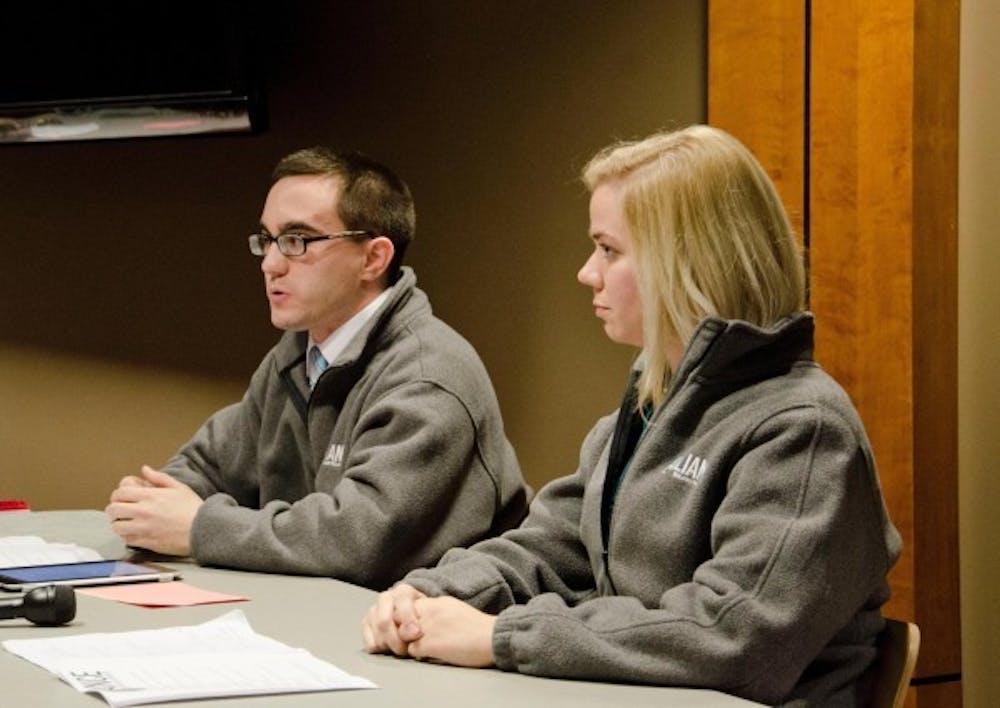A change made to the second Student Government Association debate caused executive board candidates to respond spontaneously to a question.
A rebuttal section consisted of the panel asking one slate a question and then allowing the other slate a rebuttal.
SGA president Kayla Stanton said she saw more of the slates' personalities because they were forced to think on the spot as opposed to having their answers rehearsed.
"We wanted to get them away from that and get them more into answering so that all that passion that they're talking about can come out and not be hidden behind a script," Stanton said.
During the debate, Alliance spoke on forming relationships with organizations around campus, while Velocity focused on providing changes for students.
Alliance mentioned several platform points that involve social media.
It plans to implement a centralized social media hub by having students submit their organization's events to SGA's Twitter or Facebook pages, said Alliance secretarial candidate Brittany Weaver.
Alliance presidential candidate Chris Wilkey said later in the debate that the slate then plans to follow up with those organizations by writing blog posts.
Alliance's campus leadership workshop will provide a social atmosphere for the over 300 organizations on campus, said Alliance vice presidential candidate Heather Closson.
"We want to put top leaders from every organization in the same room and let them just network and bounce ideas off of the other leaders from all of these organizations," Closson said.
One platform point that was mentioned by Velocity's presidential candidate, Chad Griewank, was to have an early voting center on campus for students. This center was discussed in 2008 but not passed by the City Council.
"We feel that this not only provides the students ample opportunity to vote, but it also allows them the ease of access," Griewank said during the debate.
He said the slate also plans to improve students' advising needs. It wants to make video clips on how to make certain changes, such as dropping a class, and post them on Blackboard. These videos would be of aid to freshmen and transfer students.
On Velocity's platform, they mentioned communicating with the Muncie city government to cooperate with the Muncie community. Griewank said the students would be the ones cooperating with the community, but cooperation would be through SGA.
He added that they will be working one on one with the Muncie City Council or with Mayor Dennis Tyler.
"So that way, we really know as a student body what they're doing, what we can do to help them and vice versa," Griewank said. "They can know what we're up to and how they can help us. So that way, we can all accomplish our goals in a timely manner."
Wilkey said he thought the new rebuttal section of the debate went well, and he was glad the slates had the opportunity to respond to the opposing side's points.
"You can look at it, and we may think we have the best ideas, and they may point out some weaknesses," he said. "But whoever wins ends up having that knowledge to make their platform better."
Griewank agreed and said the structure of the debate gave way for raw responses.
"That's where you can't hide behind anything theatrical," he said. "You have to be yourself when you're on your toes, and you can't preplan stuff. You can't preplan your answers. You have to be honest and open."



